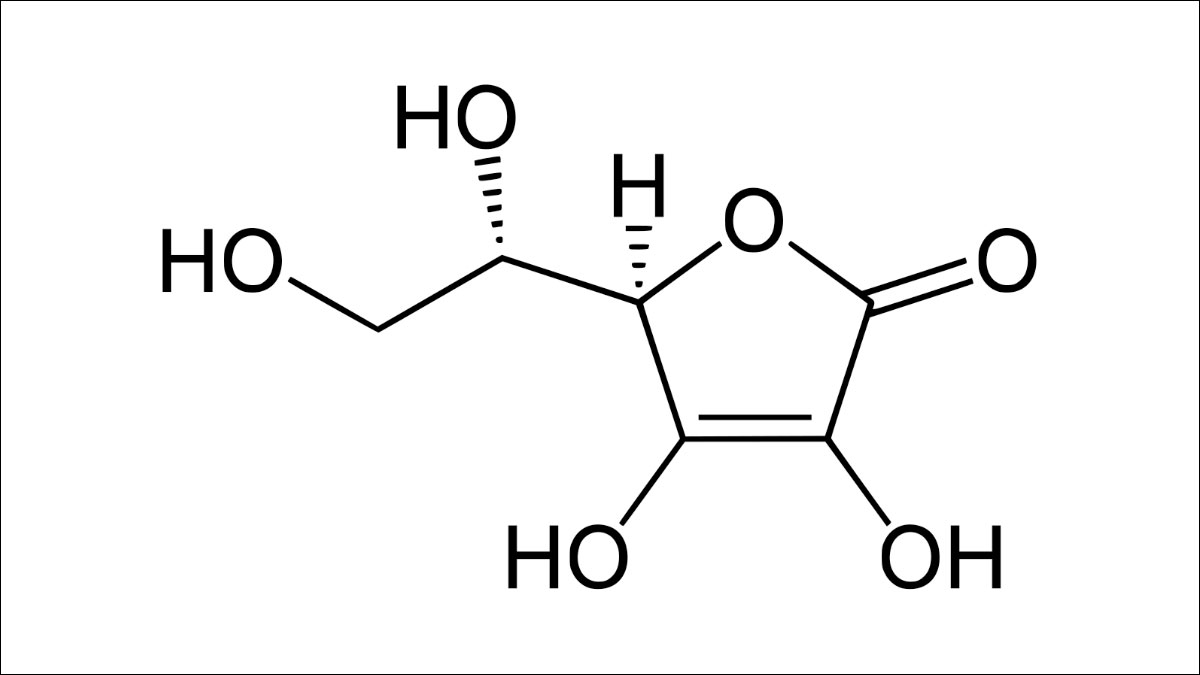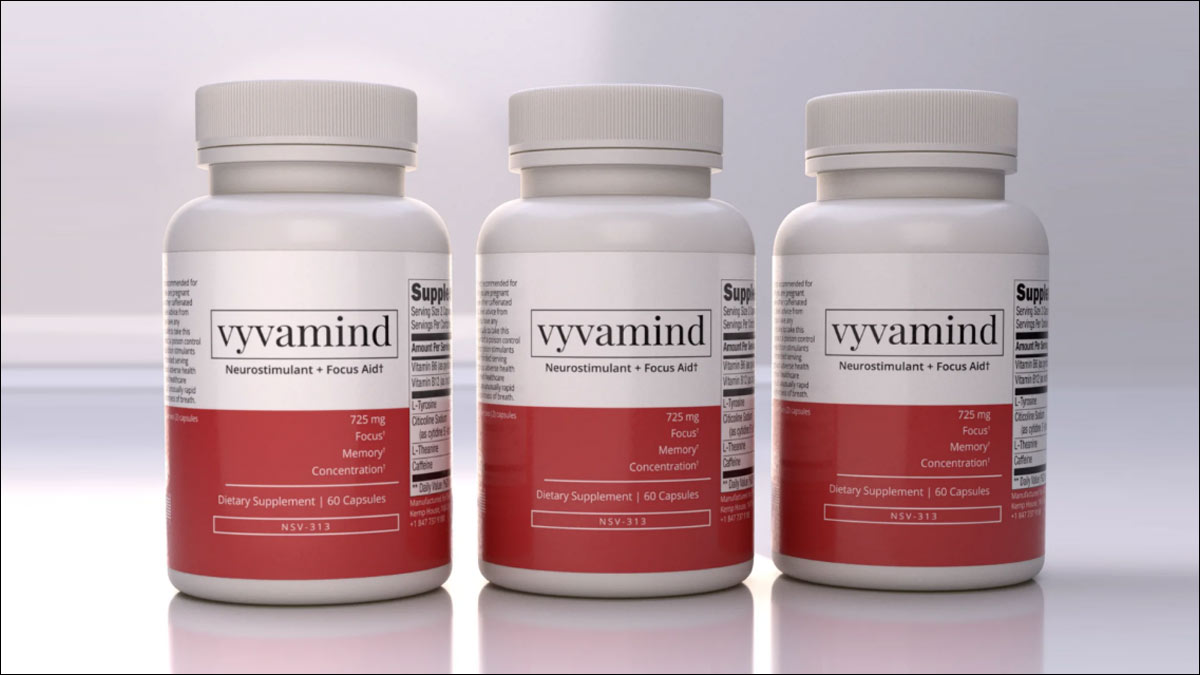
In today's fast-paced world, the quest for heightened focus and cognitive function has made Adderall a household name. Originally designed to treat Attention Deficit Hyperactivity Disorder (ADHD), its use has transcended medical prescriptions, creating waves in academic and professional circles. But like any medication, Adderall doesn’t function in isolation within our bodies. It can interact with various compounds and nutrients we consume, either enhancing its effects or leading to unintended side-effects. One such intriguing interaction, often overlooked, is with Vitamin C—a vital nutrient celebrated for its immune-boosting properties.
Table of Content:-
The concept of drug-nutrient interactions is not new, yet it remains a complex field, requiring intricate understanding and research. While many are aware of Vitamin C's primary benefits, such as supporting the immune system and aiding in skin health, its potential interaction with medications like Adderall can have significant ramifications. As we delve deeper into the relationship between Adderall and Vitamin C, we'll unravel the science behind their interaction, its implications for those relying on the drug, and ways to navigate this relationship for optimal health benefits.
Whether you're a regular Adderall user, someone considering it, or merely intrigued by the intersection of nutrition and medication, this comprehensive exploration aims to provide valuable insights.
Also read: Adderall Alternative: Best OTC Pills Without a Prescription
Adderall: A Comprehensive Overview
Adderall, a brand name for a combination of amphetamine and dextroamphetamine, belongs to a class of drugs known as stimulants. These compounds work by enhancing the activity of certain neurotransmitters in the brain.
Understanding Its Mechanism
Neurotransmitters are the brain's communication tools, responsible for transmitting messages between neurons. Adderall primarily affects two such neurotransmitters: dopamine and norepinephrine. By increasing their levels in the gaps or synapses between neurons, Adderall promotes increased alertness, attention, and energy. This enhanced neurotransmitter activity is especially beneficial for individuals with ADHD, helping them focus better and reduce impulsive behavior.
The Rise of Off-Label Use
While its therapeutic benefits for ADHD patients are well-documented, Adderall has also gained popularity among those without the disorder. College students, professionals, and others seeking heightened cognitive abilities or prolonged wakefulness often turn to this drug, sometimes without medical oversight. This off-label use has sparked both praise for its cognitive-enhancing effects and concerns over potential misuse and dependency.
Side Effects and Interactions
Like all medications, Adderall comes with its set of side effects. Some are common and benign, such as appetite suppression or increased heart rate. Others can be more severe, necessitating medical intervention. One crucial aspect of understanding and managing these side effects is recognizing potential interactions with other substances, including everyday nutrients. Which brings us to Vitamin C, an essential nutrient present in many of our daily foods and supplements, and its unique interaction with Adderall.
Vitamin C: A Vital Nutrient with Wide-Ranging Effects

Vitamin C, also known as ascorbic acid, is an essential water-soluble vitamin found abundantly in various fruits and vegetables. It plays a pivotal role in numerous bodily processes and is celebrated for its antioxidant properties.
The Multiple Roles of Vitamin C
Our bodies require vitamin C for collagen synthesis, a protein vital for maintaining skin, blood vessels, bones, and cartilage health. Additionally, it plays a crucial role in healing wounds and forming scar tissue. The vitamin also aids in the absorption of iron from plant-based foods and boosts the immune system's efficacy.
Beyond these physiological roles, vitamin C acts as a potent antioxidant, defending against harmful free radicals. By neutralizing these unstable molecules, it combats oxidative stress, which is implicated in the aging process and numerous diseases.
Vitamin C and Medications: A Complex Dance
The body metabolizes various substances through the liver, using a set of enzymes known as cytochrome P450. Vitamin C can influence the activity of these enzymes, potentially affecting the way our bodies process certain drugs, including Adderall. Understanding this interaction is crucial for those taking Adderall, especially if they're also consuming vitamin C, whether through their diet or in supplement form.
The interaction between "Adderall and vitamin C" is especially noteworthy because both substances are so common. Many people might unknowingly consume both without understanding the potential for interference, emphasizing the importance of this discussion.
How Adderall and Vitamin C Interact

The confluence of Adderall and vitamin C within the body's intricate metabolic pathways has drawn attention from researchers and medical professionals alike. As it turns out, the relationship between these two substances is more intertwined than one might initially assume.
Vitamin C's Effect on Adderall Absorption and Excretion
Central to this interaction is the manner in which vitamin C impacts the pH levels of the urine. Vitamin C, when consumed in high quantities, acidifies the urine. On the other hand, Adderall, being an amphetamine, is absorbed more efficiently in alkaline conditions and excreted faster under acidic conditions. Consequently, when one ingests significant amounts of vitamin C, it can accelerate the excretion of Adderall from the body. This can lead to decreased effectiveness of the medication and shorter durations of its therapeutic effects.
Moreover, it's worth noting that acidic foods or drinks taken close to the time of Adderall consumption might influence the drug's absorption in the stomach, potentially causing variations in its effectiveness. This mechanism might partially explain certain reports of "Adderall stomach cramps" when the medication is combined with a diet rich in vitamin C or when supplements are taken.
Evidence from Scientific Studies
Scientific studies have delved into the effects of acidic substances on amphetamines. Research has consistently shown that an acidic urinary pH can lead to increased renal elimination of amphetamines. This finding has been confirmed across multiple studies, establishing a clear foundation for the interactions between Adderall and vitamin C.
However, it's essential to understand that the actual impact on an individual can vary based on factors like the amount of vitamin C consumed, the timing relative to the Adderall dose, and individual differences in metabolism.
Implications for Regular Adderall Users
For those relying on Adderall for managing ADHD symptoms or for other prescribed purposes, this interaction could be significant. An unexpected decrease in Adderall's duration of action might lead to suboptimal symptom management. Moreover, abrupt changes in the medication's effectiveness might also lead to side effects or challenges in dosing.
Therefore, regular users of Adderall should be mindful of their vitamin C intake, especially if they're experiencing inconsistencies in the drug's effectiveness. It might be beneficial to maintain a consistent pattern of vitamin C consumption or consider adjusting the timing of vitamin C-rich foods or supplements relative to Adderall ingestion.
In conclusion, while vitamin C is an indispensable nutrient with numerous health benefits, its interaction with Adderall underscores the importance of understanding potential dietary and drug interactions. Awareness and informed decisions can ensure that both the medication and the vitamin serve their intended purposes without hindrance.
Tips for Managing the Interaction Between Vitamin C & ADHD Medications
Navigating the intricate dance between Adderall and vitamin C can be a challenge for many, especially when the subtleties of their interaction can influence therapeutic outcomes. However, with informed strategies and a touch of mindfulness, one can harness the benefits of both without compromising the effectiveness of the medication.
Spacing Out Vitamin C and Adderall Intake
A fundamental approach to mitigating the interaction is to consciously space out the consumption of Adderall and vitamin C. Given that vitamin C can impact the absorption and excretion of Adderall, it's wise to allow a few hours of gap between taking the two. For instance, if one's Adderall dose is scheduled for the morning, it might be best to reserve vitamin C-rich foods or supplements for the afternoon or evening. This way, the medication has ample time to be absorbed and exert its effects before vitamin C can influence its metabolism.
Dietary Considerations for Those on Adderall
For those on Adderall, it's essential to recognize that diet plays a pivotal role in how the medication functions. Acidic foods and beverages, beyond just those rich in vitamin C, can influence Adderall's effectiveness. If inconsistencies in Adderall's effects are noted, it might be worthwhile to review dietary habits. Frequent consumption of citrus fruits, tomato products, and certain beverages like orange juice around the time of medication intake might affect its action. Additionally, if symptoms such as increased irritability or short-lived focus are experienced, it's possible that one's Adderall dose may be too high or that dietary factors are influencing its action.
Vitamin C Supplements vs. Natural Sources
While both supplements and natural food sources of vitamin C can acidify urine, their impact might differ in intensity and duration. Supplements often provide a concentrated dose of vitamin C, which can lead to a more pronounced effect on urine pH and, consequently, on Adderall excretion. On the other hand, natural sources, like fruits and vegetables, offer vitamin C alongside other nutrients and compounds that might moderate the interaction.
For those relying on vitamin C supplements for specific health reasons, it might be worth discussing the timing and dosage with a healthcare provider, especially if they're concurrently on Adderall. Alternatively, increasing the intake of natural sources of vitamin C while reducing supplemental intake could be a balanced approach to ensure essential vitamin intake without compromising Adderall's efficacy.
In essence, the dance between Adderall and vitamin C is one of balance and timing. With a bit of foresight and a commitment to informed dietary choices, individuals can successfully navigate this interaction, ensuring optimal benefits from both the medication and the essential vitamin.
Other Nutrients and Drugs that Interact with Adderall
Adderall, like many medications, doesn't function in isolation within the body. It can interact with a plethora of substances ranging from nutrients to drugs, which can impact its overall efficacy and safety. By understanding these interactions, individuals can make informed decisions about their dietary and medication habits, aiming for optimal therapeutic results.
Brief Overview of Other Known Adderall Drug Interactions
Beyond vitamin C, several other nutrients and substances can influence the way Adderall works. For instance:
- Acidifying Agents: Foods and drugs that acidify the urine can increase the excretion rate of amphetamines, like Adderall. This includes not only vitamin C but also foods like cranberries and medications such as ammonium chloride.
- Alkalizing Agents: In contrast, substances that alkalinize the urine can decrease the excretion rate of amphetamines. Examples include antacids, certain diuretics, and some fruits and vegetables.
- MAO Inhibitors: Combining Adderall with Monoamine Oxidase (MAO) inhibitors, a class of antidepressants, is contraindicated. This combination can lead to hypertensive crises and should be avoided.
- Blood Pressure Medications: Adderall can increase blood pressure, and when combined with antihypertensive drugs, there can be unpredictable effects on blood pressure control.
Recommendations for Holistic Medication and Nutrient Management
Considering the myriad of interactions, here are some holistic guidelines for individuals on Adderall:
- Stay Informed: Continually educate oneself about potential interactions. This not only involves reading medication labels but also consulting with pharmacists and doctors about any new drug or supplement one plans to take.
- Consistent Monitoring: Regularly monitor blood pressure and other vital signs, especially if combining Adderall with other medications known to impact these parameters.
- Dietary Mindfulness: Be aware of one's diet, especially when it comes to the consumption of foods that significantly alter urine pH. Try to space out the intake of these foods from the time of Adderall consumption.
- Open Communication: Maintain open dialogue with healthcare providers. If any unusual symptoms are noticed after starting a new drug or dietary supplement, it's vital to relay this information to them.
In summary, while Adderall can be an effective medication for ADHD and narcolepsy, understanding its potential interactions is crucial. With knowledge and vigilance, one can maximize the benefits of Adderall while minimizing potential complications.
Nootropics: Safer Alternatives to Adderall

In the quest for cognitive enhancement, many individuals turn to prescription medications like Adderall, despite its potential side effects. However, a burgeoning field of cognitive enhancers, known as nootropics, offers promising alternatives. These substances, both natural and synthetic, aim to improve cognitive functions without the pronounced side effects associated with prescription stimulants.
Nootropics encompass a range of substances, from well-researched compounds like caffeine and L-theanine to more novel and experimental ones. The goal is to achieve improved focus, memory, and mental clarity without compromising one's health. Given the potential drawbacks of Adderall, such as dependency and a host of side effects ranging from sleep disturbances to heart-related issues, it makes sense to explore these alternatives.
One standout product in the realm of over-the-counter cognitive enhancers is Vyvamind. Touted as the closest thing to Adderall available without a prescription, Vyvamind combines a potent blend of ingredients designed to synergistically enhance brain function. Let's delve into the cognitive-enhancing benefits this product offers:
- Citicoline: An essential component for producing the neurotransmitter acetylcholine, which is vital for memory and learning.It is widely known as a one of the most effective nootropics for ADHD symptoms.
- Tyrosine: An amino acid precursor for dopamine, a neurotransmitter that plays a pivotal role in attention and motivation.
- Caffeine Anhydrous: A well-known stimulant that can enhance alertness and concentration, without the jitters, especially when paired with L-Theanine.
- Theanine: Found naturally in tea, this amino acid complements the effects of caffeine, promoting relaxed alertness.
- B6 and B12: These essential vitamins support overall brain health and energy production, ensuring the brain operates at its peak.
Using Vyvamind offers several advantages over Adderall. Firstly, it does not come with the pronounced side effects, such as sleep disturbances. Secondly, it doesn't require a prescription, making it more accessible to those looking to enhance their cognitive functions without medical intervention. Moreover, its combination of ingredients targets multiple pathways in the brain, ensuring a holistic approach to cognitive enhancement.
In conclusion, while Adderall might be the go-to for many seeking enhanced focus and productivity, it's essential to be aware of its potential drawbacks. In contrast, nootropics like Vyvamind present a promising, safer alternative that can deliver many of the cognitive benefits people seek, without the associated health risks.
In Conclusion: Balancing Cognitive Enhancement with Well-being
The intricate dance between Adderall and Vitamin C offers a broader lesson about the intersections of medications and nutrients in our bodies. While Adderall has become a cornerstone for many dealing with ADHD and other attention disorders, it's crucial to understand its potential interactions with everyday substances, such as vitamin C.
Awareness is the key. By acknowledging the influence of diet and supplement intake on medication effectiveness, patients can make informed decisions that optimize therapeutic outcomes while minimizing unwanted side effects. This becomes even more salient considering alternatives like Vyvamind, which offers a potent yet safer avenue for cognitive enhancement.
As we journey through the age of personalized medicine, a tailored approach that considers individual diets, genetics, and lifestyles will become paramount. For now, staying informed and working closely with healthcare professionals will ensure that we benefit from our medications while maintaining our overall well-being. Whether you're considering the shift to nootropics or keen on optimizing your Adderall regimen, knowledge is your most potent ally. Embrace it.
Advertising and Marketing by:
This content was marketed by Brandingbyexperts.com on behalf of their client.
For queries reach out support@brandingbyexperts.com
Note - This article is written by Brand Desk.
Also watch this video
Read Next
Smart Hemp Gummies Reviews (no CBD, with Ashwagandha) Australia, Canada, South Africa Price for Sale
How we keep this article up to date:
We work with experts and keep a close eye on the latest in health and wellness. Whenever there is a new research or helpful information, we update our articles with accurate and useful advice.
Current Version